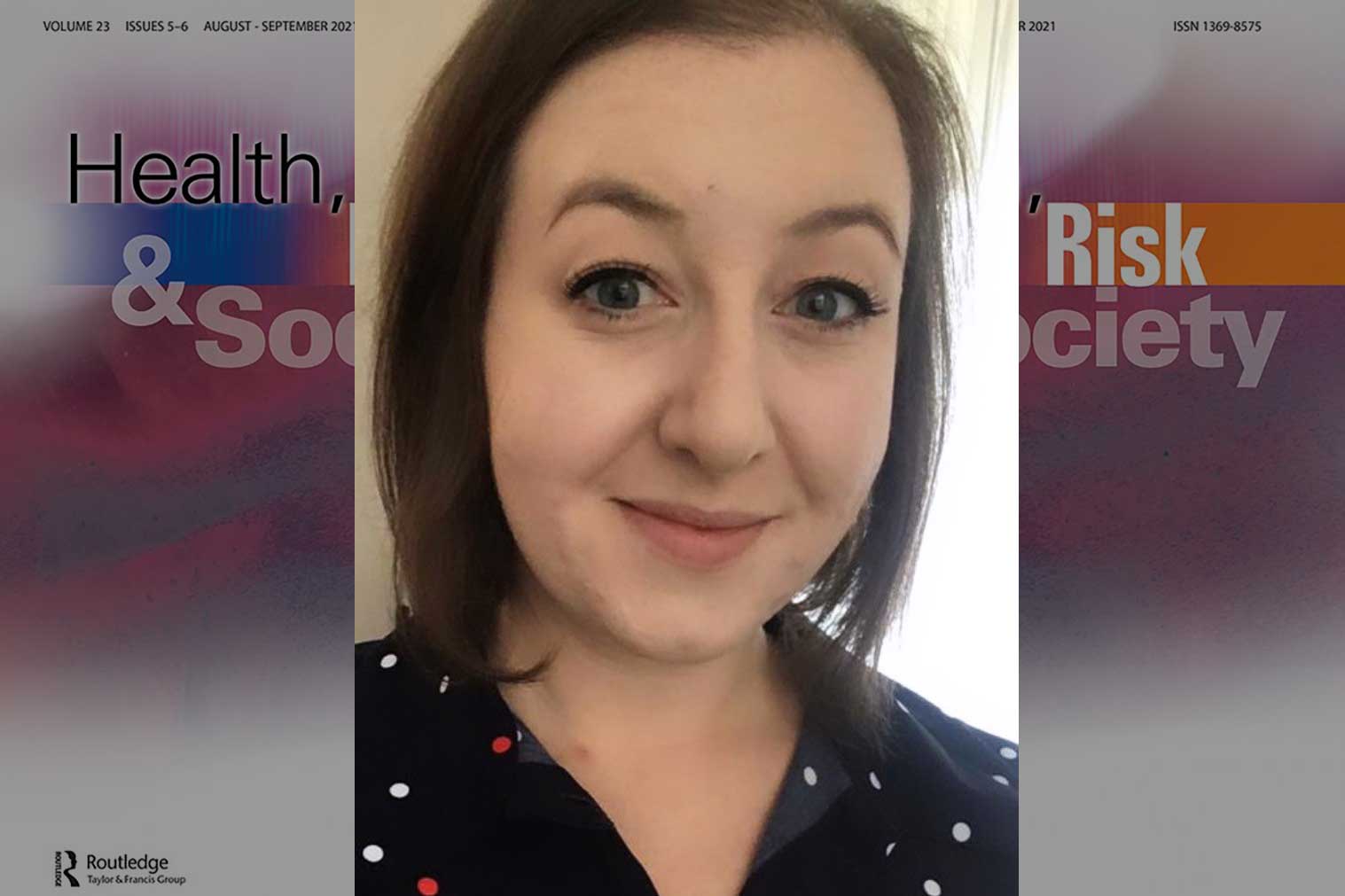
A paper critically assessing a new form of guidance on alcohol consumption during pregnancy, has been co-authored by Kent Law School PhD scholar Rachel Arkell and published in the peer-reviewed academic journal Health, Risk & Society.
‘Beyond ‘the choice to drink’ in a UK guideline on FASD: the precautionary principle, pregnancy surveillance, and the managed woman’ analyses guidance that’s targeted at health professionals instead of the pregnant women themselves. In particular, the paper focuses its analysis on SIGN 156, a new set of guidelines developed in Scotland to help healthcare professionals diagnose Fetal Alcohol Spectrum Disorder (FASD).
Rachel is a SeNSS funded socio-legal scholar at Kent whose doctoral research explores the communication of risk with regards to medication use during pregnancy. Fellow authors of the paper include Professor Ellie Lee – Director of the University of Kent’s Centre for Parenting Culture Studies (CPCS), Jennie Bristow – Visiting Research Fellow at CPCS, and Clare Murphy – CEO of the British Pregnancy Advisory Service (BPAS).
Available to read in full, via Open Access, the paper sets the context for SIGN 156 and explores developments in UK Government advice in recent years. In the abstract, the authors say: ‘We show that SIGN 156 builds on a policy context where a precautionary approach is explicit, but we furthermore detail how this approach innovates the guidance and practice field. SIGN 156 expands the meaning of risk and uncertainty and so justifies ‘routine’ monitoring and screening, generating the case for an expanded form of surveillance of pregnant women. We conclude with a critical commentary on the implications of this case for analyses of risk and uncertainty, and power.’
The paper is the first publication from an ongoing collaboration between CPCS and BPAS’s Centre for Reproductive Research & Communication.
Before beginning her doctoral studies, Rachel completed an LLB (in European Legal Studies), an LLM (in Medical Law and Ethics), and an MA (in Methods of Social Research), all at the University of Kent. Read more about Rachel’s PhD student experience at Kent on the Graduate and Research College blog.
Rachel hopes to pursue a career in research and says her PhD supports this aspiration “by giving me the opportunity to foster my research skills and connect with individuals and organisations who share my research interests.”




